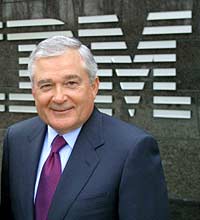
As a child I watched the the biography of Mahatma Gandhi and till date I admire his passion and courage to lead and enforce without violence. To me he represents the word ‘Ethics’ due to the fact he never permitted a violent protest even when he led most of it. The most intriguing thing is, I see Ghandi in my dad who has brought me up with the notion that for me to lead right I had to ensure I was acting right. He led by example with uprightness, authenticity and ethics. Even at the expense of his job, he never bent. As the first child of my parents I was born to lead my younger siblings and have practiced leadership all my life, although since I entered the labour market, I realised that leadership in the corporate world is a whole different experience as I managed a small business for a year in my country after my first degree in the university. After such experience I observed I had to learn to be an outstanding, effective leader and travelled to study International Human resource management at Coventry University London Campus.
Am still on the path of understanding the type of leader I am, but so far from all i have learned, i am aspiring to be a charismatic and transformational leader. These styles of leading are said to be similar. In 1978 James Macgregor Burns introduced the transformational leadership style which involves to “simulate and inspire followers to both achieve extraordinary outcomes and, in the process, develop their own leadership capacity” (Bass and Riggio 2008). It is said that there are four important characteristics of transformational leadership which involve; individual consideration, inspirational motivation, intellectual stimulation and idealised influence.

In 1947, Weber developed the charismatic leadership which involves “an innovation, strategic vision, showing sensitivity to member needs, displaying unconventional behaviour, taking personal risks, and showing sensitivity to the environment” (Yukl 1999)
There are other styles known as the laissez-faire leadership style where the followers or subordinates are allowed to make decisions whenever and however they like. The authoritarian is also a style known to be the kind of leadership where there is a high power distance between the leaders and their followers and they do not have opinions or freedom of expression. Most companies with an autocratic style of leadership tend to have less competitive advantage over those led by a transformational or charismatic leader as there is hardly participation from the employees concerning major decisions in the organisation and it leads to de motivation of these employees.
Out of these styles of leadership I prefer the Transformational and Charismatic leadership To be led by people, with this these styles of leadership will be so inspiring. Moreso, adopting these styles of leadership would enable me focus on my employees in the future in order to motivate and inspire them in order to increase efficiency among employees.
One example of a transformational leader, I admire in the corporate world is Lou Gerstner of IBM who is known to have transformed the culture of IBM for the better.

As an MBA student, there is a particular module by the title ‘Leading in a changing world’. It is in one of the activities for this module that I was given a chance to lead a team of five colleagues and at the end of the activity, the team members were asked to give feedbacks on how I led. To my surprise I had good feedback which will help me improve on my leadership skills for now and the future. Below is a table illustrating some of strengths and weaknesses in leading my skill.
| STRENGTHS | WEAKNESSES |
| Very supportive and quick to give praise for a job well done and also quick to criticise bad behaviour | Low tolerance for mistakes |
| Looks at approaches from different aspects | Bad time management skills |
| Treats other team members with respect | Lack of confidence |
| Great communication skills | Always worry too much |
| Great delegating skill | Indecisive |
| Very encouraging and motivating | Not always authentic |
| A hardworking individual | Complain a lot |
The process of giving feedbacks and receiving in return was initially awkward to me as I did not understand its usefulness but as time passed, I understood that the process was necessary for improvement.
This module has helped me to learn and practice effective leadership styles and as a future manager, it is necessary that am aware of important perspectives of the workplace like, business ethics, diversity and change management. This should apply to all managers in the corporate world too.
References
Bass, B. and Riggio, R. (2008). Transformational Leadership. Mahwah, New Jersey: Lawrence Erlbaum Associates, Inc.
YouTube.com, (2014). Louis V Gerstner IBM Leadership (DCP 2010)[Online] Available at: http://www.youtube.com/watch?v=AzwDaHxI1Ho [ 22 September 2014]
Yukl, G. (1999). An Evalutaion of Conceptual Weakness in Transformational and Charismatic Leadership Theories. The Leadership Quarterly, 10 (2), 285-305

A good reflection on your leadership style and it is evident on your behaviour the way you always stand up for what you think is right.
LikeLike
I am honoured by this comment, thank you so much ezeani
LikeLike
Wow. This is so inspiring. Good work, I enjoyed reading it.
LikeLike
Thank you so much ebinum, hope you learned a great deal from it?
LikeLike
Mahatma Ghandi is an exceptional leader and a role model to a lot of people, he should be a role model to a lot more if they just took their time to study him and his way of leading. He had given me great insight into the kind of leader I want to be and how I can effect change in a peaceful manner. Personally I do not usually take the bull by the horn approach but when necessary I do and having been in a position to lead people for a while I discovered how hard it is to lead and much harder to do it ethically but having a role model like mahatma Ghandi and others much closer to home(my parents) gives me a blue print to work with and make me strive to always want to become a better leader.
LikeLike
Dear Bode i am honoured to know Ghandi is admired by you too, because his story should be an example for people to learn from.
LikeLike
I am happy you learned from this post and you already know the kind of leader you are.
LikeLike